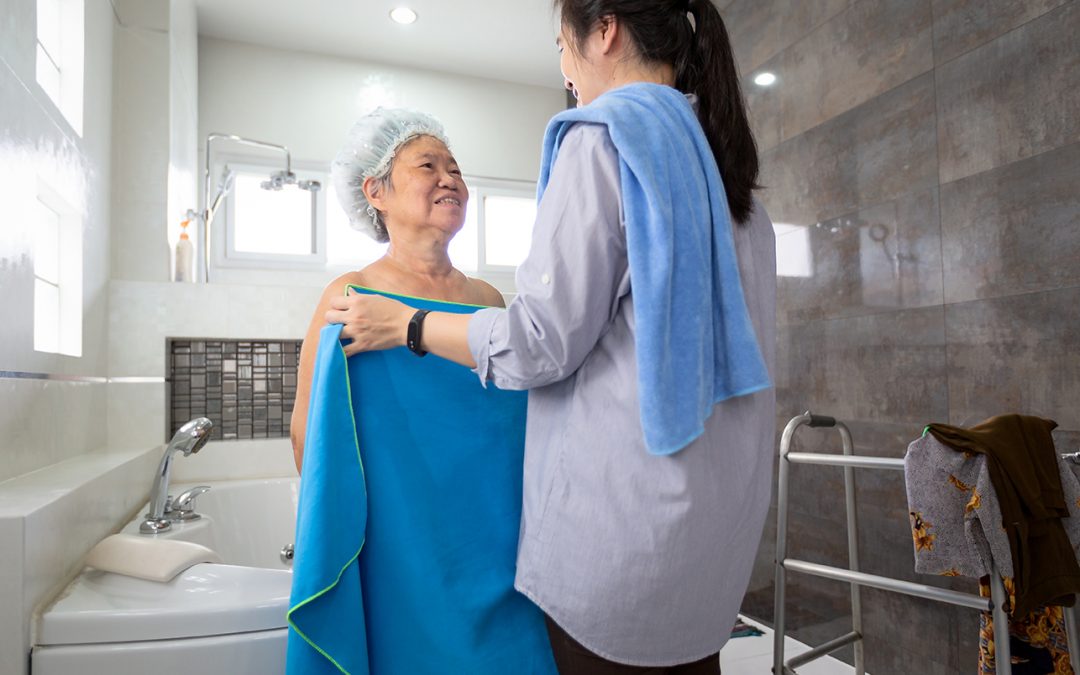Bathing seniors can be a challenging and often awkward task. Nobody wants to rely on someone else for bathing and Caregivers have a responsibility to not only ensure that a senior gets clean, but also to remain as respectful as possible.
Why Bathing Seniors requires proper attention
Seniors may require help performing routine chores for many reasons, but in particular, bathing is one of the necessary routines that can be potentially dangerous.
Some of the reasons why seniors may need help bathing include:
- Mobility problems
- Arthritis or a stroke
- Alzheimer’s disease, which may cause seniors to forget bathing.
Practice the Art of Distraction when Bathing Seniors
One of the best ways to relieve tension is to keep the person occupied by carrying on a conversation on unrelated matters. Keeping the patient talking helps reduce the pressure and makes the bathing go more smoothly. Music can also provide a soothing atmosphere, while some people relax when they can hear the television.
Remember Warmth: Bath Temperature and Personality
Older people often get cold very easily. A personal care worker who is responsible for helping older people take a bath should make sure the temperature in the bathroom is warm before drawing the bath.
If the senior is capable of some of the bathing process, let him or her wash sensitive areas. If the person cannot assist, then consider bathing the area while holding a towel to block vision. This method can be used to wash delicate areas without causing too much awkwardness.
Sensitive Skin, Sensitive Emotions
Try to use the kind of soap that the senior prefers. As each area of the body above water is gently washed, immediately rinse and dry the cleaned section of skin to keep the senior from getting chilly. Some people only need help getting in and out of the tub. Provide only the necessary assistance in order to preserve as much dignity as possible for the senior.
Check the skin for sores or infections, because the senior may neglect proper care for small injuries. If it is a bad day for the patient, do not force him or her to bathe. If the problem persists, discuss matters with the health care provider.
Tools for Bathing Seniors
There are several items that should be handy which allow bathing to go smoothly.
The following is a list of grooming aids:
- Disposable gloves prevent the spread of germs to or from the person getting bathed.
- Bath towels and washcloth are essential.
- Supply the brands of soap, lotion, powder and other bathing supplies the senior prefers.
- Remember to keep deodorant, toothpaste, a comb or hairbrush, a toothbrush, shaving supplies, and other toiletries on hand.
- Keep a full set of clothes handy if the senior is to be dressed. If not, then have underclothes and a robe or blanket ready.
Bathroom Changes May be Needed when Bathing Seniors
Sometimes all that is needed for elderly people to bathe is safe access to the tub. There are many safety products available that make bathrooms easy to use for people with mobility problems. For instance, safety bars can be installed for the shower, tub, or toilet.
Bathrooms may also need to be redesigned to allow walker or wheelchair access. Slip-resistant floor mats provide protection against falls, and anti-slip tub decals can assist those people who can stand without help. Safety bath and shower seats make the task of bathing a senior much easier. Bath lifts, rails and steps can also make bathtubs easier to access.




